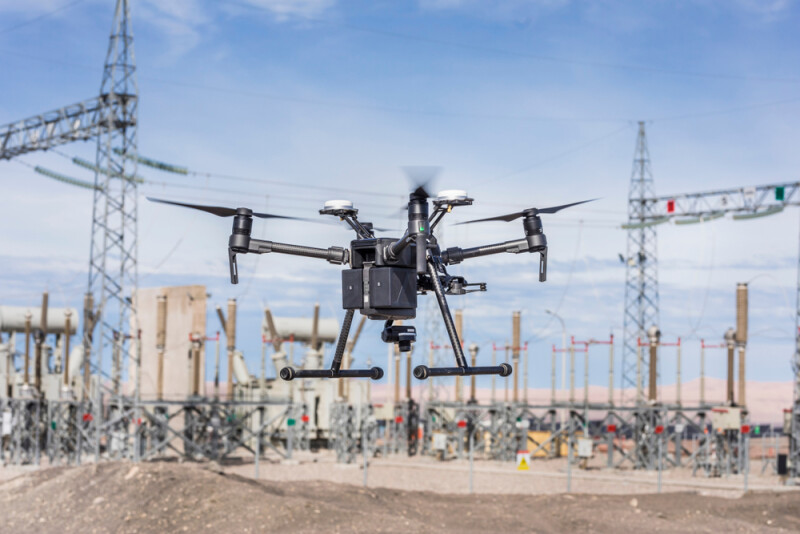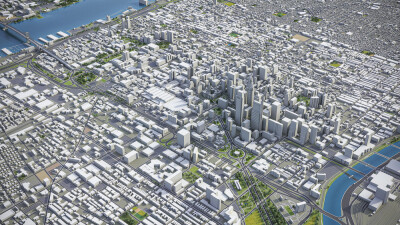Every week at Geo Week News we look at some stories from around the industry highlighting the latest insights, innovation, and case studies within the 3D technology realm, touching on everything from simple 3D models, to reality capture, to digital twins. This week is no different, with a trio of stories covering different technologies and use cases. First up, we have a story that looks at how mixed reality is being utilized for real-time inspection workflows. Then, we look at how one company is leveraging digital twins for processes in their factories. And finally, we have a story looking at improvements made around handheld 3D scanning. Find links to the full articles below.
Mixed-reality photogrammetry in focus
Gerhard Kemper, Çağın Torkut, Devrim Akca, Armin Grün | GIM International
It’s long been known that UAVs provide a way to inspect crucial infrastructure in a safer and often more efficient way, but that hasn’t been something that is generally done in real-time. This article highlights a methodology to change that. The group of authors discuss a research projected called REALTIME3D, put together by the European Commission, with the goal of “designing and developing livestreamed, multi-user and 3D stereoscopic view-based mixed-reality (MR) photogrammetry software for diverse kinds of inspection tasks.”
Foxconn Trains Robots, Streamlines Assembly With NVIDIA AI and Omniverse
Madison Huang | NVIDIA
In terms of digital twins being used for complex facilities, particularly those incorporating robotics in some way, NVIDIA’s Omniverse is the dominant platform in the space. Adoption of these workflows is continuing to increase due to numerous factors, including improved AI and greater accessibility of 3D capturing tools, and this week NVIDIA has highlighted one company using this technology. In the linked article, Huang discusses how Foxconn is using digital twins in one of their factories to “define processes and train robots” in a virtual environment.
Reducing Operator Variability in 3D Laser Scanning
Anthony Vianna | Quality Digest
While most of our focus at Geo Week News in terms of 3D scanning is with stronger systems that are placed either on a tripod or some sort of vehicle, like a car or UAV, handheld scanners have also seen plenty of improvement in recent years. Generally used to scan things like parts in engineering workflows – and sometimes coral – this is technology that has improved quite a bit over the last decade or so. It’s this improvement that is at the center of Vianna’s article, looking at some of the under-the-hood technologies that have unlocked this progress.






